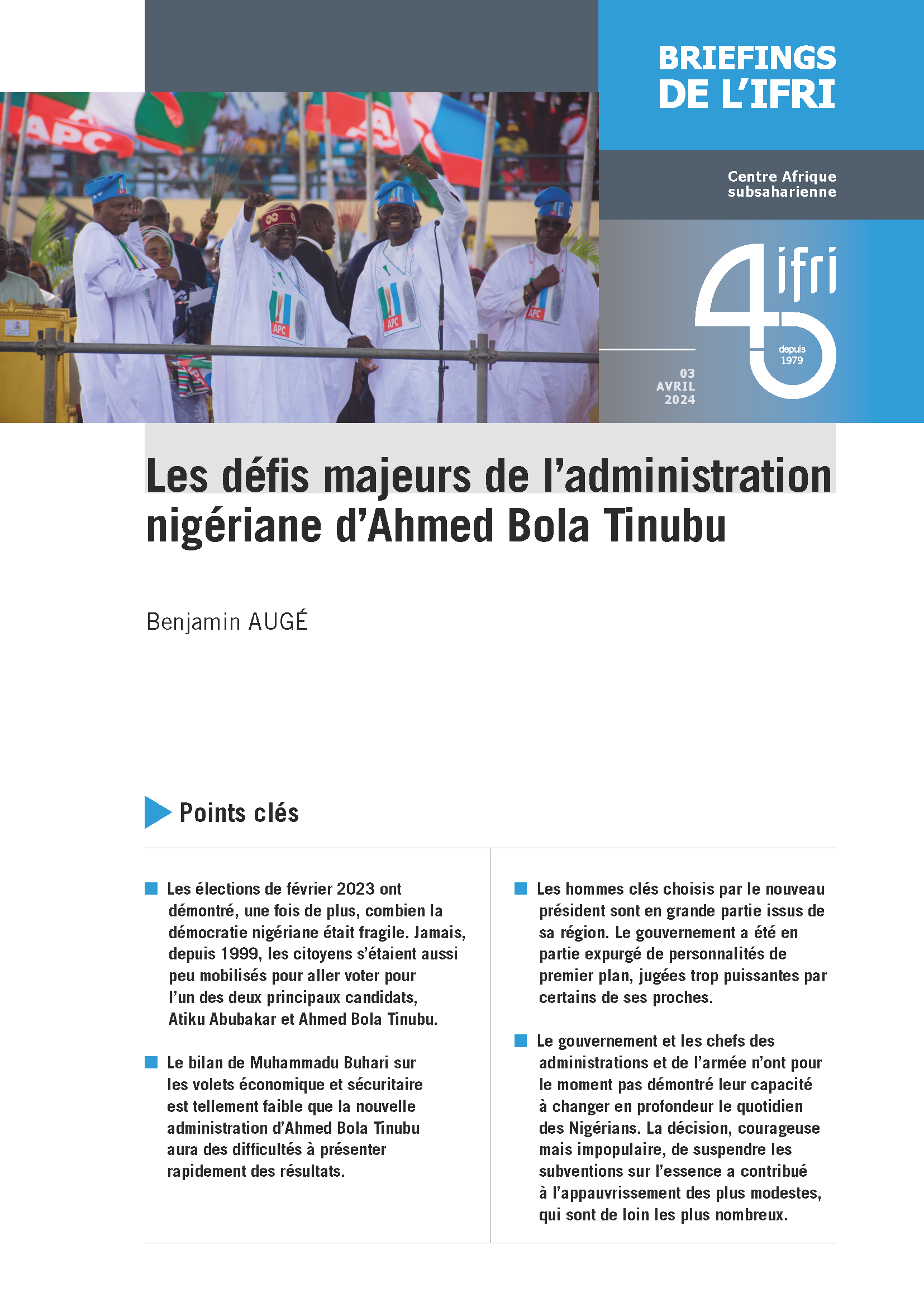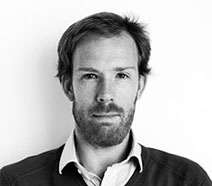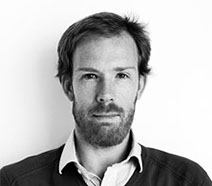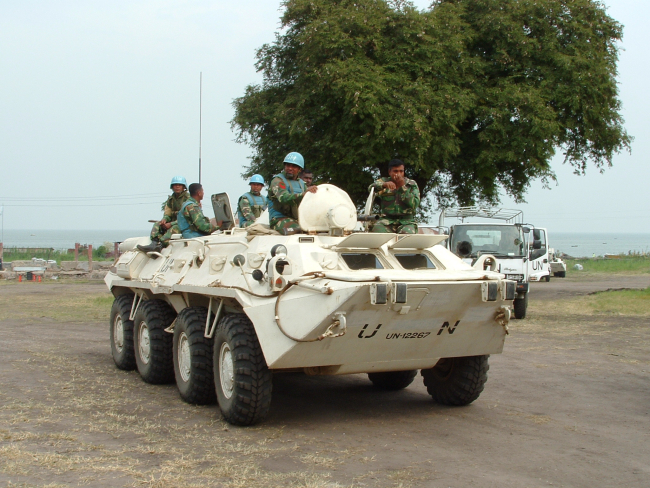The Major Challenges of Ahmed Bola Tinubu's Nigerian Administration

Voter turnout for Nigeria's presidential elections in February-March 2023 has never been so low since the country's return to democracy in 1999. Nigeria's new president, Ahmed Bola Tinubu, must now reassure voters that Africa's leading economy is capable of putting the lie to a persistent image of a country in decline.

Economic growth of 3.3% in 2022 (compared with 3.6% in 2021 and -1.8% in 2020) will benefit only a minority, while a growing majority of the population (63% in 2023) will be living in poverty. This difficult economic and social climate is taking place against a backdrop of steadily declining oil production (from 2.3 million barrels per day to 1.3 million barrels per day between 2003 and 2022). With oil sales financing almost two-thirds of the federal budget, this decline further reduces the federal government's scope for investment and limits financial transfers to the 36 federated states and 774 local governments.
As far as security is concerned, much of Nigeria is still affected by various forms of violence. In the Niger delta, mafias continue to plunder crude oil and reign terror, notably by increasing the number of kidnappings; in the central region, violence between herders and farmers has not ceased. In the north-west, gangsterism is taking on critical proportions in the states of Sokoto (the poorest in the country, with 91% of the population living below the poverty line), Katsina and Zamfara. Finally, the north-east region continues to suffer the convulsions of groups that have emerged from the Boko Haram split.
President Ahmed Bola Tinubu, a member of the All Progressive Congress (APC) - victorious in February 2023 over Atiku Abubakar's People's Democratic Party (PDP) and Peter Obi's Labour Party (LP) –, is well aware that the vast majority of the population, very disappointed by Muhammadu Buhari's two terms in office (2015-2023), expect him to focus particularly on economic and security issues. These eight years were perceived as a period of deterioration in the standard of living of a very large proportion of the population, due in particular to an unreadable monetary policy and insecurity that now extended to most of the federation's 36 states.
This publication is available in French: Les défis majeurs de l’administration nigériane d’Ahmed Bola Tinubu.
Related centers and programs
Discover our other research centers and programsFind out more
Discover all our analysesAnglo-Kenyan Relations (1920-2024) : Conflict, Alliance and a Redemptive Arc
This article provides an evidentiary basis for postcolonial policy in its analysis of Anglo-Kenyan relations in a decolonization era.
When City Diplomacy Meets Geopolitics: A Framework to Help Cities Navigate Geopolitical Risk
Crises and the increasing polarization of international relations make political risk analysis an indispensable resource for internationally active public and private entities.
The United Nations Mission in Congo or the exemplary uselessness of the United Nations peacekeepers
During the M23 conflict in 2012-2013 in the Democratic Republic of Congo (DRC), the United Nations (UN) took the diplomatic initiative (by initiating the Addis Ababa agreement) and the military initiative (by launching a coordinated counter-offensive with the Congolese army). Since the resurgence of this conflict in 2022, the United Nations, which still has more than 10,000 peacekeepers deployed in eastern DRC, no longer plays any role.
Rebooting Italy's Africa Policy: Making the Mattei Plan Work
Against the backdrop of increasing anti-French rhetoric across parts of Francophone Africa, the relative failure of the counterinsurgency operation in the central Sahel (Operation Barkhane) and diplomatic rifts with several Sahelian countries, Paris has been rethinking its relationship with the continent for several years now. As a former imperial power that has seen its colonial domain in Africa gain independence between 1956 (Morocco-Tunisia) and 1977 (Djibouti), France has invented two successive roles for itself in Africa since 1960, particularly in French-speaking sub-Saharan Africa.















